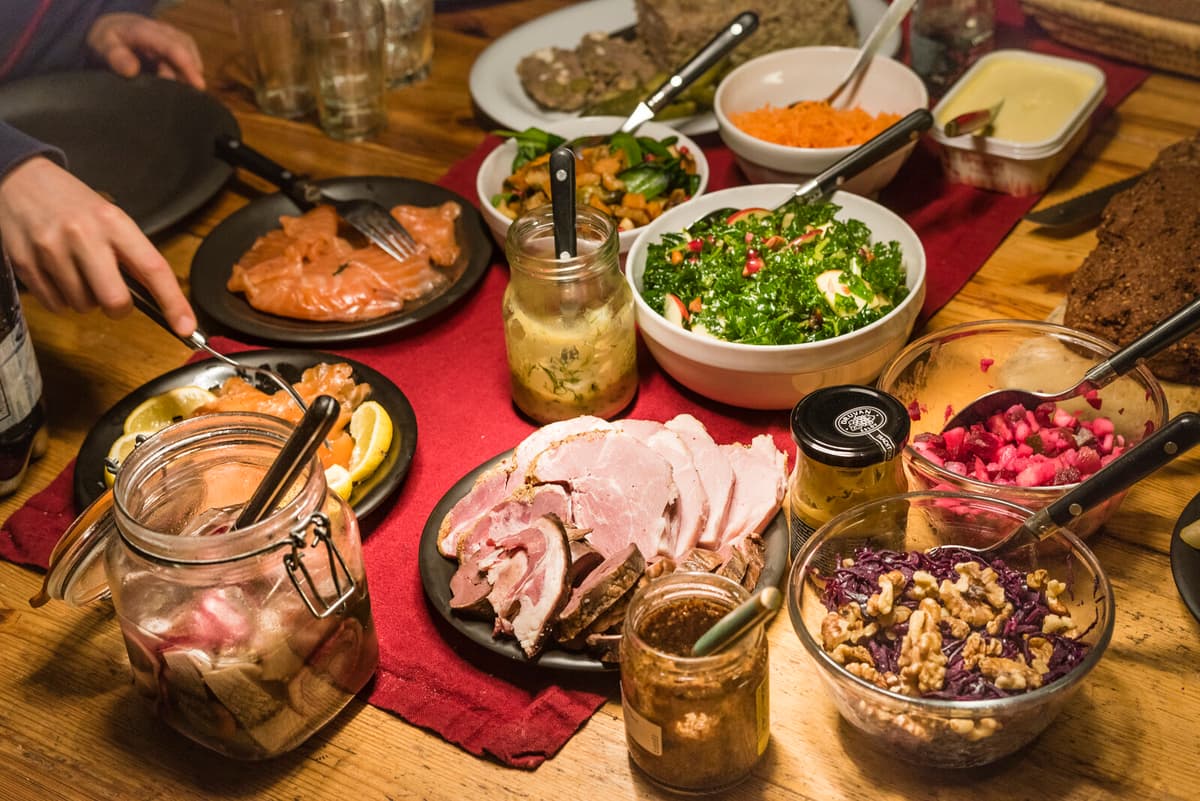The Christmas season can mean both a larger amount of food and more dinner guests than you're used to.
The food may be left out longer than usual and is often moved back and forth between the refrigerator and the dinner table over several days. This is a perfect environment for bacteria to grow.
Here are some practical tips to avoid food poisoning as an unwanted Christmas gift.
Heat Properly
Be extra careful with hygiene:
It's a good general tip to think about it. We have a lot of bacteria on our hands, so it's good to wash your hands both before cooking and before eating, says Karin Landström, a lecturer in nutrition.
Especially if you've handled raw meat and the like, and make sure to wash cutting boards and knives, as bacteria love proteins.
Be careful with the temperature:
When heating food, you should ideally get it up to at least 72 degrees. Of course, people don't usually stand around with a thermometer, but that's the advice you usually get.
During Christmas, you may also have food that's been left out for a long time and is only lukewarm. It's a perfect place for bacteria to start growing.
Heat only once:
You should generally not reheat food multiple times. Food that's been in the refrigerator and has been reheated should not be put back in the refrigerator again, says Karin Landström.
So you can try not to take out more food than you'll actually use.
"A Different Occasion"
This is especially true, she continues, when heating food in the microwave, where it's a bit harder to get an even temperature.
You should also be extra careful with protein-rich food that's not reheated at all, such as deviled eggs.
Christmas is a slightly different occasion. I think it's a risk factor, that you think "it usually goes well anyway", says Karin Landström.
So you can think about it generally, that you handle food a bit differently too.
Put perishable items like fresh meat, fish, and dairy products in the refrigerator as soon as possible. The refrigerator should ideally be around 4 degrees.
Be careful to wash your hands before cooking and immediately after handling raw meat.
Make sure to keep the area where you cook clean. Wash knives and cutting boards thoroughly if you've cut raw meat.
Put cooked food in the refrigerator as soon as possible. Divide larger amounts of food into smaller containers to cool faster or refrigerate outdoors if it's cold outside.
Fresh fish that's going to be eaten raw or marinated should first be frozen for at least three days.
Use enough vinegar and salt when pickling fish and store it in the refrigerator.
Be careful to cook through, for example, ground meat and poultry.
Source: The National Food Agency.






